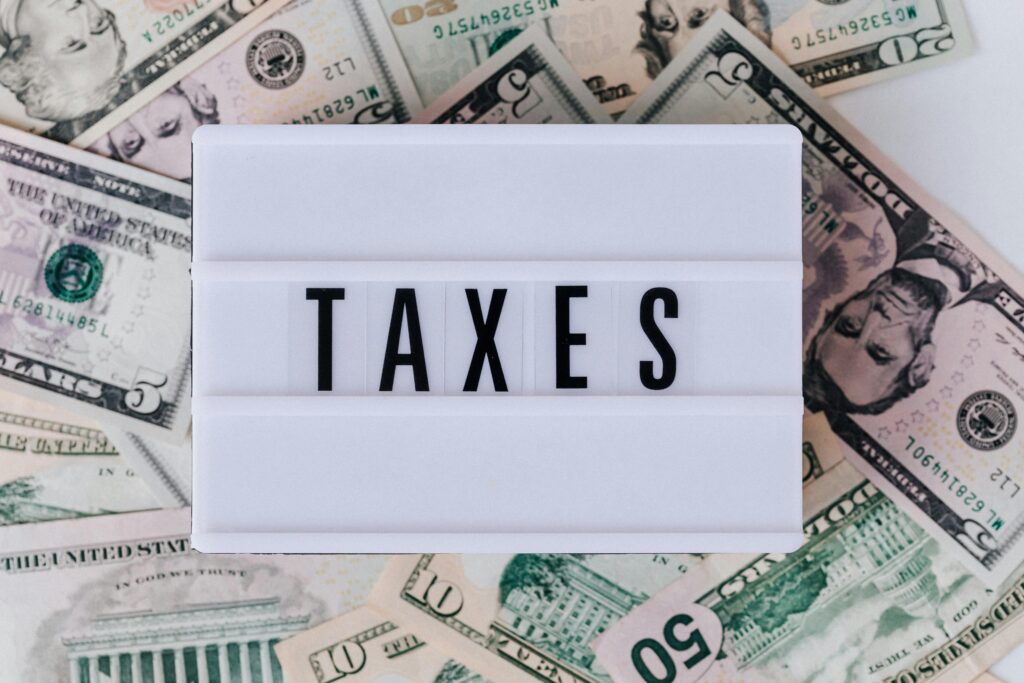
The growth of freelancing in the United States has changed how millions of people work and earn income. Although freelancing provides flexibility and freedom, it also entails responsibilities, particularly with regard to tax management. Freelancers, in contrast to regular employees, are entirely in charge of declaring their earnings, figuring out their estimated taxes, and making sure they don’t lose out on any tax deductions. This is where automated tax deductions for freelancers have become a powerful solution. By using automation tools, freelancers can simplify the tax process, ensure accuracy, and maximize the number of deductions they claim, ultimately leading to significant financial savings.
Why Automated Tax Deductions for Freelancers Are Essential
Managing taxes as a freelancer can be extremely challenging because expenses build up quickly, and income often comes from many clients, projects, or platforms. Relying on traditional manual tracking usually leads to misplaced receipts, forgotten mileage, or overlooked subscriptions, which can cost freelancers hundreds or even thousands of dollars each year. Freelancers resolve these issues in a simple and reliable way by adopting automated tax deductions. Automated systems connect directly with bank accounts, credit cards, and digital payment platforms to record transactions instantly and classify them correctly. This helps freelancers stay fully compliant with IRS regulations, reduce costly errors, and eliminate the constant stress of manual bookkeeping, while accurately capturing every deduction.
How Automated Tax Deductions for Freelancers Work in Practice
Automating tax deductions is a surprisingly simple process. The majority of freelancing platforms include direct financial account linkage, allowing real-time inflow of receipts, income, and expenses. For instance, the system automatically classifies a freelancer’s purchase of a software subscription such as Canva or Zoom as a business tool. Similar to this, mileage monitoring apps record journeys and compute travel costs using GPS technology, eliminating the need for human input. This helps freelancers avoid underpayment penalties by enabling them to rapidly calculate quarterly tax estimations. Freelancers have fully accurate, categorized, and organized reports ready to file by the time tax season rolls around. This efficiency is the reason why more professionals are embracing automated tax deductions for freelancers each year.
Top Tools for Automated Tax Deductions for Freelancers
One of the most important steps in maximizing automation is choosing the right platform. Different tools offer unique features, and the best choice depends on the type of freelance work. QuickBooks Self-Employed is highly rated for tracking mileage, separating personal and business expenses, and integrating with TurboTax for fast filing. Hurdlr is popular for freelancers managing multiple income sources across platforms. Expensify works well for frequent travelers with its simple receipt scanning. FreshBooks combines expense tracking with invoicing, making it ideal for those seeking an all-in-one solution. For freelancers who prefer both automation and expert support, Bench Accounting offers monthly financial reports. These tools show how automated tax deductions for freelancers can adapt to individual needs.
Important Deduction Categories That Freelancers Can Automate
Automation guarantees that freelancers never overlook expenses. The home office deduction allows them to deduct part of rent, utilities, and insurance, and automation calculates it accurately. For travel and vehicle costs, automated systems use GPS to track mileage and remove guesswork. They also categorize subscriptions and business software like Adobe Creative Cloud, online storage, or accounting apps as soon as payments process. Freelancers track and depreciate purchases such as laptops, cameras, or office furniture with precision. Automation also records professional services like accounting or legal fees without effort. These deductions play a vital role in lowering taxable income, and by using automated tax deductions for freelancers, professionals capture every opportunity for savings with accuracy and ease.
Step-by-Step Guide to Automating Tax Deductions
Freelancers must follow a few essential steps to start automation. First, they choose the right tool, whether QuickBooks, Hurdlr, or another platform that fits their needs. Next, they connect bank accounts, credit cards, and payment systems to capture every transaction automatically. They then customize expense categories to align with IRS guidelines, ensuring accurate deductions. Freelancers enable mileage tracking to log every business-related trip and scan receipts immediately after purchases to keep records secure. Each month, they review automated reports to correct errors and maintain accuracy. At tax time, they simply export organized reports for use with an accountant or tax software. By following these steps, automated tax deductions for freelancers work efficiently and provide reliable results all year.

3 Benefits of Automated Tax Deductions for Freelancers
1. Save Valuable Time
Manually logging expenses takes hours each month. Automation connects with your bank accounts and payment platforms to track expenses instantly. Freelancers can focus more on work instead of paperwork.
2. Reduce Costly Errors
Mistakes in tax filing often lead to penalties. Automated systems categorize expenses correctly and keep records organized. This means fewer errors and smoother filing.
3. Capture Every Deduction
Freelancers often miss small but important deductions like mileage, software, or subscriptions. Automated tracking ensures that nothing slips through the cracks, helping you maximize savings.
Common Mistakes Freelancers Avoid with Automated Deductions
The lack of organization causes many freelancers to lose money. Manual methods can result in misplaced miles, forgotten receipts, and misunderstandings about which expenses are deductible. Additionally, some independent contractors mix professional and personal costs, which can cause problems for the IRS. By establishing distinct separation and consistency, automation removes these dangers. By relying on automated tax deductions for freelancers, independent professionals avoid common pitfalls such as underestimating quarterly taxes, misclassifying expenses, or losing supporting documentation. These systems not only save money but also provide peace of mind during audits, since everything is well-documented and accurate.
The Financial Benefits of Automated Tax Deductions for Freelancers
One of automation’s biggest advantages for freelancers is how much money it can save. Over a year, those savings really add up—every missed deduction is money left on the table. Simple habits, like consistently logging mileage, can lead to hundreds of dollars in savings. Likewise, tracking expenses such as home office supplies or subscription-based tools can greatly reduce taxable income. Automation helps ensure no small cost is forgotten. It also supports smarter planning by providing quarterly tax estimates, helping freelancers avoid penalties and stay ahead. In the end, tax deductions aren’t just a matter of ease—they’re a key part of protecting your income. With the right tools, freelancers can keep more of what they earn
The Future of Automated Tax Deductions for Freelancers
It is anticipated that tax automation for independent contractors will improve further as technology develops. Soon, artificial intelligence will be able to examine spending trends and recommend extra deductions that independent contractors might not have thought of. Tools that rapidly verify compliance may be made possible by real-time IRS integration, which lowers the possibility of audits. Additionally, forecasting tools will advance, assisting independent contractors in planning for long-term financial objectives as well as taxes. This future makes automation of tax for freelancers, even more valuable, as they will become central to financial management for independent workers.
Conclusion
Managing taxes does not need to be stressful or overwhelming. By embracing automated tax deductions for freelancers, professionals can save time, increase accuracy, and maximize their tax savings. Automation guarantees that all expenses are appropriately classified, no deduction is overlooked, and records are always prepared for an audit. This gives freelancers more time to concentrate on their work, increased financial security, and the knowledge that their hard-earned money is safeguarded. Automation is now essential to success in today’s digital world for any freelancer hoping to handle taxes in an intelligent manner.

Pingback: 10 Powerful Business Loan Requirements for Small Businesses - financierwrite.com